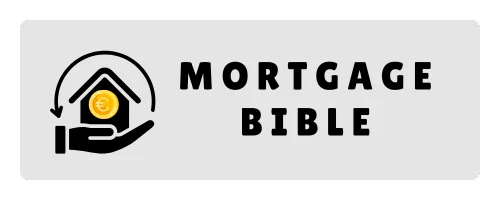Why Credit Union Mortgages Are a Smart Choice for Homebuyers
Buying a home is often the most significant financial decision many people make. Choosing the right mortgage lender can impact not only your monthly payments but the overall experience of securing your dream home. Credit union mortgages have gained popularity as a compelling alternative to traditional banks. Unlike big banks, credit unions operate as member-owned, nonprofit cooperatives, aligning their priorities closely with those of their members. This member-first philosophy often translates to better mortgage rates, personalized service, and flexible terms.
Credit union mortgages provide an appealing blend of affordability and customer-oriented solutions. Understanding why they stand out helps prospective buyers make confident decisions when choosing financing options.
Benefits of Credit Union Mortgages
Competitive Interest Rates
One of the most attractive features of credit union mortgages is their competitive interest rates. Since credit unions are nonprofit entities, the savings from lower operating costs are often passed directly to members through lower rates. This can lead to:
– Reduced monthly mortgage payments
– Significant savings over the loan’s lifespan
– Enhanced affordability, allowing for potential upgrades on your dream home
Unlike large banks driven by shareholder profits, credit unions focus on offering the best possible rates to their members.
Lower Fees and Closing Costs
Many credit unions charge fewer and lower fees on mortgage applications and closings compared to traditional lenders. Some common areas where savings occur include:
– Application fees
– Underwriting fees
– Origination fees
Lower closing costs can make homeownership more accessible, especially for first-time buyers.
Personalized Service and Flexibility
Credit unions tend to operate on a more personal level. Loan officers often take extra time to understand individual financial situations and goals. This can result in:
– Customized mortgage products tailored to unique circumstances
– More flexibility in underwriting guidelines, benefiting those with non-traditional credit profiles
– Clear communication throughout the loan process, reducing stress and confusion
Members frequently report higher satisfaction rates due to the attentive service provided.
Member Ownership and Community Focus
Credit unions are democratically owned by their members, meaning your mortgage interest payments indirectly benefit your community. This member-focused model fosters trust and encourages responsible lending. Many credit unions also reinvest in local projects and charities, strengthening community ties. This makes credit union mortgages not only a financial choice but a community-supportive one.
How to Qualify for Credit Union Mortgages
Membership Requirements
Since credit unions serve specific communities or groups, joining one usually requires eligibility based on geographic location, employer, or affiliation with an organization. Common ways to qualify include:
– Living or working in a defined area
– Being employed by a partner company
– Membership in professional, educational, or religious organizations
Many credit unions have simplified joining procedures, allowing easy membership and access to mortgage products.
Credit and Income Guidelines
Credit unions often offer more flexible underwriting standards compared to traditional banks. While good credit scores improve approval chances and rates, some credit unions are willing to work with:
– Moderate or rebuilding credit
– Alternative proof of income such as gig work or seasonal employment
– Debt-to-income ratios higher than bank thresholds
This flexibility helps more homebuyers qualify for mortgages tailored to their situation.
Types of Credit Union Mortgages
Fixed-Rate Mortgages
Fixed-rate mortgages from credit unions provide consistent monthly payments over the life of the loan. This predictability appeals to homebuyers looking for stability. Credit unions typically offer fixed terms of 15, 20, or 30 years with competitive rates.
Adjustable-Rate Mortgages (ARMs)
Many credit unions also offer adjustable-rate mortgages. ARMs start with a lower initial interest rate that adjusts periodically based on market indexes. These products can be suitable for:
– Buyers planning to sell or refinance in a few years
– Those looking for lower initial payments with some flexibility
Credit union ARMs usually come with caps limiting rate increases, adding a measure of security.
Special Mortgage Programs
Several credit unions provide unique mortgage programs aimed at specific groups or purposes, such as:
– First-time homebuyer loans with reduced down payment requirements
– Renewable energy or green home loan options
– Home improvement loans bundled with mortgages
Exploring these programs can reveal cost-effective opportunities tailored to your lifestyle.
Steps to Secure Your Credit Union Mortgage
Step 1: Become a Member
Start by identifying local or eligible credit unions and completing their membership applications. Membership often involves opening a savings account with a small deposit.
Step 2: Get Pre-Approved
Request mortgage pre-approval early in the homebuying process. This gives you:
– A clear understanding of how much you can borrow
– Stronger negotiating power with sellers
– Insight into potential loan terms and payments
Step 3: Submit a Mortgage Application
After finding your dream home, formally apply for your credit union mortgage. Prepare required documents such as:
– Income verification (pay stubs, tax returns)
– Credit history reports
– Bank statements and assets documentation
Step 4: Loan Processing and Underwriting
The credit union reviews your application, verifies information, and assesses risk. Their flexibility often means quicker responses and a more human approach.
Step 5: Closing and Funding
Once approved, you’ll receive disclosures outlining terms. Upon agreement, the loan closes, and funds are disbursed for your home purchase.
Comparing Credit Union Mortgages to Traditional Bank Loans
Interest Rates and Fees
Credit union mortgages typically offer lower rates and fees. According to the National Credit Union Administration, average credit union mortgage rates can be 0.5% to 1% lower than bank rates, directly affecting affordability.
Customer Experience
Members often cite superior personalized service with credit unions, contrasting banks’ highly automated and centralized processes.
Underwriting Flexibility
Credit unions may accommodate applicants with unique financial situations, including self-employment or lower credit scores that banks might reject.
Common Myths About Credit Union Mortgages Debunked
Myth 1: Credit Unions Only Serve Certain Groups
While credit unions have membership eligibility, many serve broad communities or offer easy membership pathways, making them accessible to a wide range of borrowers.
Myth 2: Credit Union Mortgage Process Is Complicated
Credit unions pride themselves on guiding members with transparent and straightforward procedures, often simpler than traditional lenders’ cumbersome processes.
Final Thoughts and Next Steps
Credit union mortgages stand out as an excellent choice for homebuyers seeking affordable rates, lower fees, and a service experience centered around their needs. Their unique structure as member-owned cooperatives empowers borrowers with flexibility and fairness. If you want to unlock your dream home with confidence and savings, consider exploring credit union mortgage options in your area.
Take the first step today: research your local credit unions, join as a member, and get pre-approved. Empower yourself with a mortgage lender that values your success as much as you do. For personalized assistance and expert guidance, visit khmuhtadin.com to connect with professionals who can help you navigate and secure the best credit union mortgage suited to your dream home goals.




